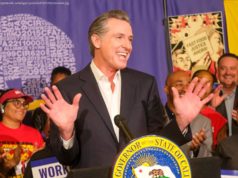New York City Mayor Bill De Blasio today announced a task force to examine how city agencies use algorithms to make decisions. The mayor’s office called it the “first of its kind in the U. S.” and said the task force aims to produce a report in December 2019.
New York City Mayor Bill De Blasio today announced a task force to examine how city agencies use algorithms to make decisions. The mayor’s office called it the “first of its kind in the U. S.” and said the task force aims to produce a report in December 2019.
Specifically, the new task force will examine machine learning algorithms in use by the New York City Police Department, the Department of Transportation, the Mayor’s Office of Criminal Justice, the Administration for Children’s Services, the Department of Education, and the Department of Social Services. It will develop a process to determine whether the automated systems are “fair,” “equitable,” and “accountable.” It will also identify ways the algorithms’ decision-making can be made more transparent.
The task force’s creation is mandated by a City Council law passed in 2017, and part of the Council’s broader effort to study how AI systems discriminate against people based on race, gender, sexual orientation, citizenship status, and gender. Council member James Vacca, the bill’s sponsor, told ProPublica he was inspired by investigations into a racially biased algorithm designed to classify DNA samples.
“As data and technology become more central to the work of city government, the algorithms we use to aid decision making must be aligned with our goals and values,” said Mayor de Blasio. “The establishment of the Automated Decision Systems Task Force is an important first step towards greater transparency and equity in our use of technology.”
The task force will be chaired by Emily Newman, acting director of the mayor’s Office of Operations, and Brittny Saunders, deputy commissioner for strategic initiatives at the Commission of Human Rights. The rank and file is still in flux, but the city says it will include “representatives from a variety of fields, including individuals from academic and legal communities, experts in data and technology, and leaders of nonprofits and think tanks.”






